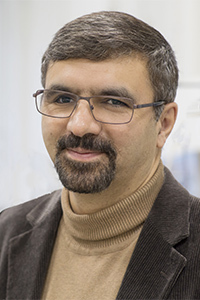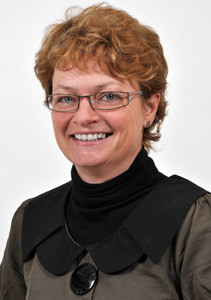Bioconversion of fruit wastes into biogas
Start date: 2011-01-01
End date: 2014-09-30
Several universities, research institutes, municipalities and companies from both countries are involved. This project will create competence at UGM on biogas production. In this project, we focus first on the possible inhibiting compounds in the fruit wastes on digestion and the pretreatments to reduce their effect. Then, rapid digestion is carried out using two-stage digestion, in which hydrolysis and part of acidogenesis are carried out in the first stage, while flocculated acetogens and methanogens produce biogas with short retention time in the second stage.
Relevance and gender perspective
Indonesia is a one of the countries considered for SIDAs organization in Southeast Asia. This project is in line of converting solid wastes to renewable energy (biogas). Since 2006, we are developing a model in Borås, Sweden, in order to transfer knowledge and technology from Sweden to developing countries on resource (energy and materials) recovery from solid wastes in form of “actor collaboration”. In this model, different actors, including universities, companies, research institutes and local governments from two cities (from Sweden and the developing countries) collaborate in order to cover all the aspects of a modern waste management. Creating local competence at the local university occurs by shared education followed by shared research. University of Borås (UB) and Chalmers University of Technology (CTH) from Sweden and Gadjah Mada University (UGM) and Bandung University of Technology (ITB) from Indonesia have been so far the active partners in educational issues, while more Indonesian universities are getting involved. Technical Research Inst. of Sweden (SP) has been the active partner in helping Indonesians with environmental review, and the work is carried out by several cities/universities in Indonesia. All the works are managed in Sweden via an “Actor Collaboration (Aktörssamverkan)” committee in Borås. The whole work result into learning from Sweden and find and adapt new solutions to the "wastes to energy in economical way" in the developing country. In this project, the Sandwich PhD students and also MSc/BSc students from Indonesia will do research on biogas production partly in Sweden and partly in Indonesia in order to learn in the Swedish environment and also create a research environment at UGM in Indonesia about biogas. In addition, the project addresses a potential problem in using some fruit wastes for biogas production, and also developing new technologies for digestion processes. In addition, this application is complementary to a running SIDA’s financing on building a plant for biogas production from wastes of a fruit market in Sleman Regency in Indonesia. The gender issues are not directly related to this project. However, we intend to stimulate women to actively work on this project. Among the co-applicants, both the genders are presented. At least one of the PhD students will be selected as woman. In addition, we intend to use MSc students from both genders to do their theses on the subjects connected to this project.
Results
The results of this work will directly be used in running the biogas plant from the fruit wastes in Sleman (co-financed by SIDA/NUTEK). The market produces 4-10 tons/day fruit wastes, and a biogas plant is going to be built this year in order to take care of this waste. It is a typical size of the fruit market in Indonesia, where almost each city has their own fruit market. The results produced in this project (both the experimental results and also the created competence) as well as the biogas plant at the fruit market in Sleman can be further used to build new biogas plants in Indonesia to convert fruit wastes into biogas. It will contribute in producing electricity from fruit wastes in Indonesia.
External co-researchers
Project Leader
Mohammad Taherzadeh
Professor
033-435 5908



